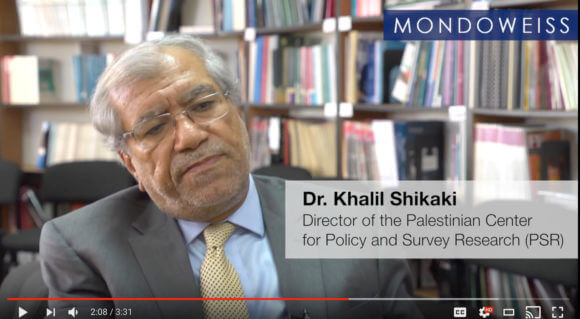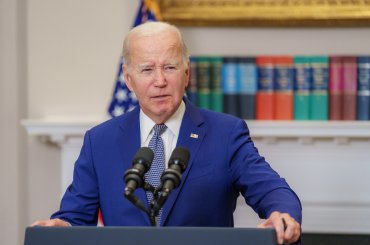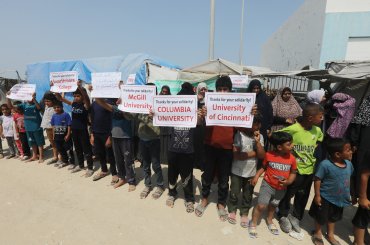A central question of the Middle East Peace Process remains: can the two-state solution be saved?
Israel continues to build illegal settlements in the occupied Palestinian Territories – contrary to the recent UN resolution 2334. Against this backdrop, a conference has been organized in Paris on Sunday, January 15 to try to relaunch the moribund peace process. Over 70 countries will be attending the conference although Israeli and Palestinian officials will not be present.
The French Initiative has been warmly received by the Palestinian leadership as a final chance to save the two-state-solution: “Two states today is possible. Tomorrow, it might be too late” warned Muhammad Shtayyeh, Fatah Central Committee Member, who nevertheless remains optimistic. “The reality on the ground, the demography on the ground, the geography on the ground, shows that a two-state solution is still possible today”.
However, Palestinian public opinion no longer reflects this official position. A recent poll shows that 65% of Palestinians no longer believe the two-state solution is viable due to ongoing settlement expansion. “The more people think the two-state solution is no longer viable, the more likely they it is that they will shift and support a one-state solution” explains Dr. Khalil Shikaki, Director of the Palestinian Center for Policy and Survey Research.
A few years ago, a minority of Palestinians would openly express support for the one-state solution. But today support is growing according to Radi Jarai, a Fatah dissident and Political Scientist at Al-Quds University. In 2013, together with members from other political factions, he created the ‘One Democratic State’ movement that advocates for the creation of a binational state. According to Jarai: “We are in a one-state solution since 1967, after the occupation of the West Bank and Gaza strip”. Young people are key proponents of the binational state. Mainly because they are disillusioned with the concepts of state building and the peace process.
Will the peace process be relaunched after the Paris Conference? More than 60% of Palestinians believe otherwise.



Be specific: If the un or fatah or hamas would advocate a one state solution, what would be the statements and policies of those 3 institutions?
excellent video, thank you.
Mondo friends! Please note that all the references to “Palestinian public opinion” you make above refer to polls conducted only among that minority of the Palestinian people who are still graciously “permitted” by the occupying power to reside in the occupied West Bank and Gaza. Seventy years of dedicated ethnic cleansing by Israel (using many means to achieve this end, including violence, forced removals, socioeconomic strangling, and administrative harassment) has resulted in a situation in which more than half of all Palestinians today are not permitted to reside in their homeland at all, whereas another 1.2 million or so live as Palestinian citizens of Israel within “1948” Israel.
When anyone refers to “Palestinian opinion” while counting only the opinions of Palestinians allowed by Israel to reside in the WB and Gaza, they are in essence colluding in that campaign of disenfranchizing all those other Palestinians. If all actual Palestinians including Palestinians forced by Israel to live in exile from their homeland and Palestinians who have Israeli citizenship were to be polled, the results would have been very different (and far less supportive of any Palestinian mini-state) all along.
And yes, my criticism certainly includes Khalil Shikaki and Mohammed Shtayyeh, both of whom have bought into (indeed, have helped to propagate) the “Palestinians = only the current residents of the WB & Gaza” framing.
Please try to take adequate note of this whenever you publish (or generate) any writing referring to “Palestinian public opinion”.
This statement from John Whitbeck sums up quite nicely what is happening in Paris.
“There can be only one explanation for why all these politicians would go to the ceremonial trouble of gathering together to insist that the two-state solution is the ONLY way forward while advocating ABSOLUTELY NOTHING to offer any hope of achieving it: – They are seeking to foreclose (or at least to forestall) a decision by the Palestinian people to seek their freedom and some measure of justice through transforming the one-state reality which the Zionist movement has created in historical Palestine from an apartheid reality into a democratic reality with equal rights and human dignity for all (which would be very awkward and difficult for those who profess to support democracy to deal with) – and, thereby, to sustain the occupation and the status quo while continuing, for their own personal political convenience, to fake an interest in achieving a two-state solution.”
I understood nowhere in the world had Jews enjoyed as positive a neighborly relationship with their neighbors as with the Arabs in Palestine….. before the Zionist movement began flooding Palestine with European Jews with the idea it was a land without a people…. certainly no equal rights. Why can’t that eventually become possible again if equal rights are respected?
If the Aral League or Fatah put the issue of equality on thetable, they would likely be attacked as seeking the “destruction of Israel” as was the PLO following its founding objective, a secular democratic state with equality for all.
A campaign for equality, emanating from the grass roots of Palestine, would have several positive impacts. It could negate the idea/narrative the Palestinian intention is to destroy Israel and kill its Jews. It could inspire Israelis and Palestinians to think co-existence. It could inspire America’s political class to lend political support. Perhaps most important , it could inspire Israelis, to whom a Jewish State is important to rein in the taking of territory by force and articulate ways a two state accommodation could be designed.